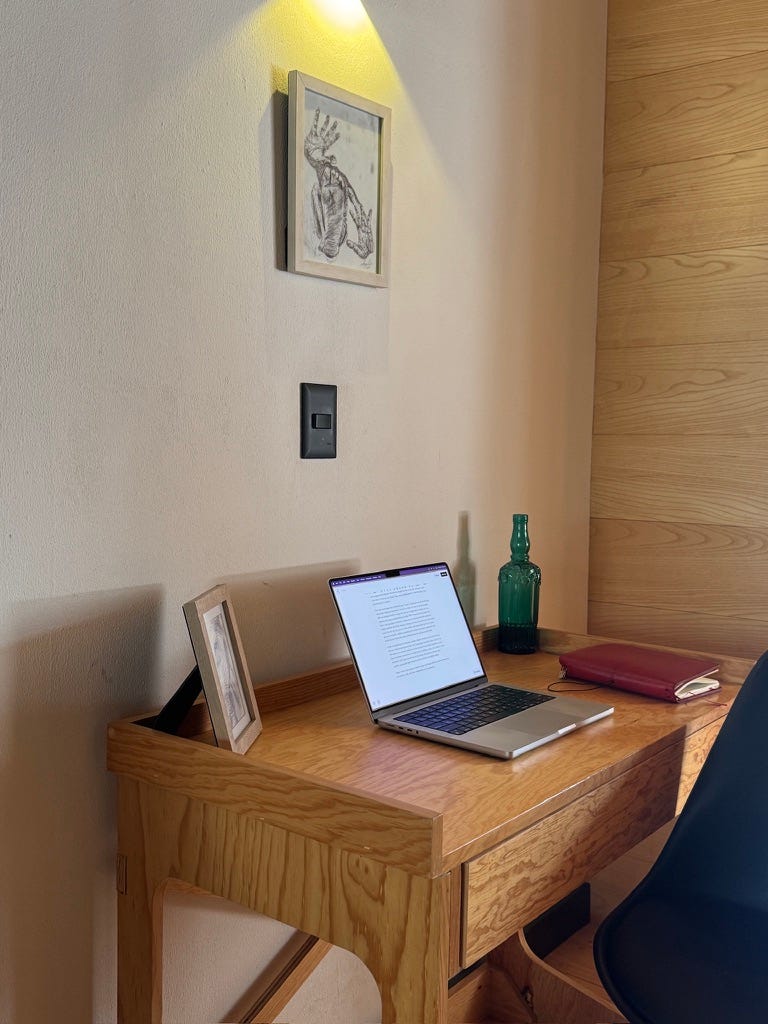On chaos, happiness, and doomscrolling
Open Tabs 01: What to consume rather than doomscrolling
I’ve been following Charlee Brooks on TikTok for while and absolutely love his goal of curating more intentional media to consume rather than doomscrolling. I recently started sharing some of the articles that live in my brain rent free on Instagram so of course I had to bring it over to Substack as well. Not sure how often I’ll do these but if you’re also on a mission to curb your doomscrolling, here’s what I’ve been reading and loving.
Handling chaos in a healthy way
I love ayushi thakkar’s posts on personal growth and introspective thinking and this article honestly came at the perfect time when life and work was bleeding too far into each other again and I was feeling extremely overwhelmed.
Tools are only as good as the user
“What if AI isn’t here to replace us—but to remind us of what only we can do?” In this playful yet practical essay, Janice Fong reimagines our relationship with AI through the lens of Charlie and the Chocolate Factory, unpacking how designers can use technology as a powerful collaborator—not a threat. Blending pop culture with career advice, she urges creatives to shift their mindset, identify their irreplaceable human edge, and approach AI like a helpful (if slightly chaotic) intern. This is your call to create with more confidence, not more fear.
As someone who shares her thoughts on the internet, I loved reading Ayan’s article on what it really means to be a critic—beyond snarky tweets and hot takes. From being insatiably curious and doing your research, to resisting the pull of online discourse, to standing firm in your honest (even unpopular) takes, Ayan makes the case that good criticism is earned work—and worth protecting in an age of algorithmic noise.
I’ve never really considered the relationship between intelligence and happiness but Arthur C. Brooks, a columnist from The Atlantic dives into why highly intelligent people often struggle contentment—not because of their intellect, but because of how they use it. Loved this thoughtful, research-backed read that was perfect for anyone who tends to overthink their way into stress.
Joy isn’t supposed to be another item on your to-do list. Katharina explores how our obsession with productivity has quietly rebranded joy as something to optimize—how even rest, leisure, and creativity have been turned into self-improvement projects. She unpacks why our brains start treating fun like work, and what it really means to reclaim joy as something spontaneous, unmeasured, and gloriously inefficient.
See you in the next one!








Thank you for sharing these articles Angel. My doomscrolling has been out of control lately. I've bookmarked this post and I'm going to read a few of your suggestions when I inevitably get the doomscroll urge this evening!